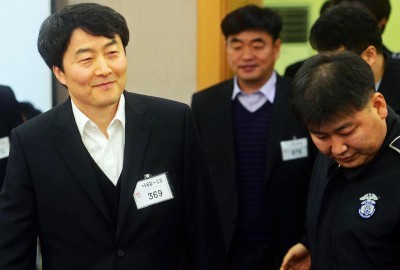South Korea: Threat to Freedom of Speech and Political Rights. Reminiscent of Park Chung-hee Dictatorship

South Korea’s struggle towards greater democracy has taken significant setbacks in the last few months, and basic freedoms are now at risk in a manner reminiscent of the Park Chung-hee dictatorship.
For example, did you know that members of parliament have been jailed for their political speech? Representative Lee Seok-ki of the Unified Progressive Party (the UPP), along with six other individuals, were convicted last May of criminal acts related to a speech given by Representative Lee in which he warned of US aggression on the peninsula and considered what would happen in the outbreak of war, which he argued the US wanted. Based solely on his speech, Representative Lee was found guilty by a South Korean trial court on February 17, 2014 of three different charges, all stemming from the contents of his speech. On August 11, 2014, the Court of Appeal dismissed a charge that alleged that Representative Lee had formed a “revolutionary organization,” but maintained the guilty verdicts for attempting to incite violence through his speech, as well as violations of the National Security Act charges. Representative Lee is currently serving a nine-year term.
Lee’s party, the UPP, is the third largest political party in Korea. It is a left party that advocates for greater dialogue with North Korea and the US out of Korean politics. The UPP currently has about 5 percent of the votes in the Korean Parliament. Following Representative Lee’s speech, the South Korean government initiated proceedings with the Korean Constitutional Court to ban the UPP. This is the first time in Korea’s democratic history that the government has initiated proceedings against a legitimate political party — and one with small but important representation in Parliament.
In support of dissolution, the government — headed by Park Geun-hye, the daughter of Korea’s former dictator, President Park Chung-hee — has argued that the UPP is in league with the North Koreans and is a threat to the democratic order, using Representative Lee’s speech as the centerpiece of their assault against the UPP. The government’s conduct has greatly chilled speech in South Korea, with people afraid to speak their minds about this case. Media outlets like the New York Times and The Guardian have called the case “unusual” and a “test of the health of South Korean democracy,” in light of the government’s attempt to use national security laws to repress political dissent.
On November 4, 2014, I had the opportunity to meet with Representative Lee in prison and to hear personally about his case and what happened to him and the six individuals who were jailed for speaking their minds. Representative Lee remains in good spirits, but it is clear that he and those who are fighting to protect South Korean democracy need the support of outsiders. In the coming days, my office intends to circulate petitions to American lawyers asking them to show support for the principles of free speech, freedom of assembly, and the right to counsel — now all at risk in South Korea.

